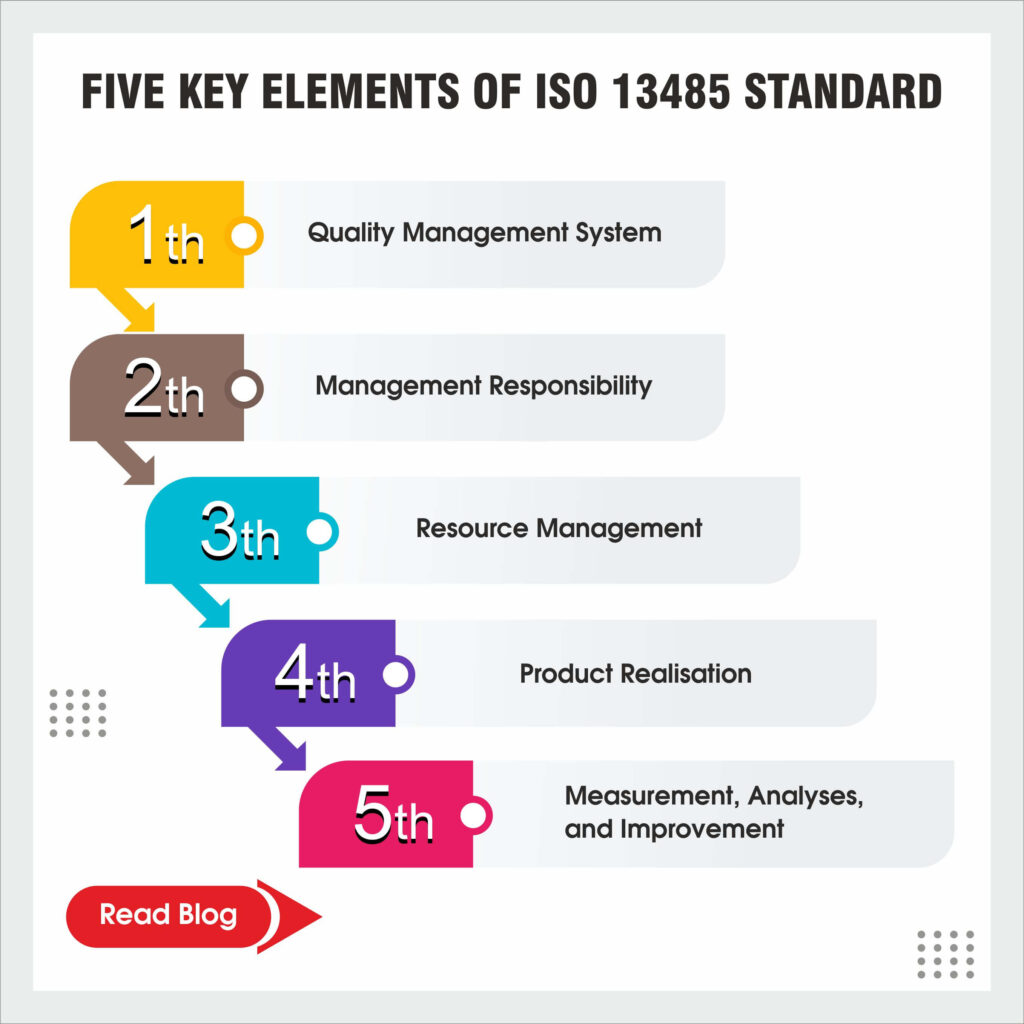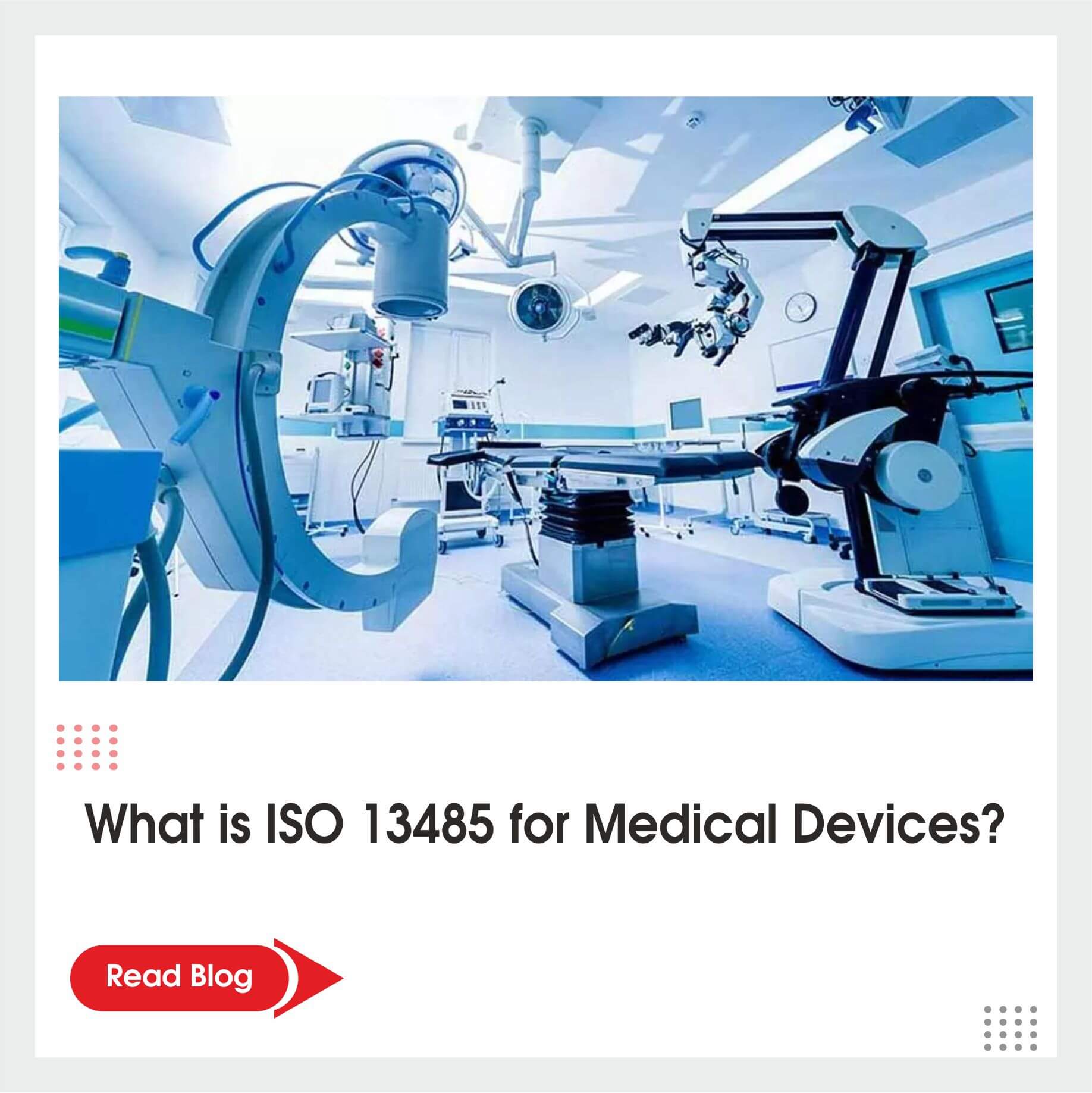The Medical Industry forms a very significant part of the economy. However, the medical device industry is the next big emerging market worldwide that helps people fight odd health conditions and make life easy and comfortable.
When it comes to medical devices, quality and safety are crucial. Manufacturers and suppliers follow strict guidelines to guarantee their products meet stringent quality and legal criteria. ISO 13485 standard is one such standard that addresses medical device quality management systems (QMS) for medical devices.
What is ISO 13485:2016 Certification? ⮯
ISO 13485 is the primary Quality Management System (QMS) standard for medical devices, and various nations have their laws. The Food and Drug Administration (FDA) regulations for medical devices harmonise with ISO 13485 in the United States. The most recent version, released in March 2016, is ISO 13485:2016.
The entire life cycle of a medical device is covered by ISO 13485:2016, including design and development, manufacturing, distribution, storage, installation, and servicing. It also includes providing related services like technical assistance or designing and developing.
ISO 13485: A specific standard for medical devices based on QMS ⮯
An organisation utilises a quality management system (QMS) to plan, implement, monitor, and improve its performance to meet its goals. QMS standards are collections of policies, procedures, processes, and resources. It helps an organisation in the following ways:
- It establishes a systematic and consistent approach to managing its activities and processes with the help of a QMS built on ISO 13485:2016.
- It showcases that the organisation is capable of offering connected services and safe and reliable medical equipment.
- It meets the needs and expectations of the consumer and makes them happier.
- It respects relevant legal regulations and makes it easier for people to access the market.
- It helps organisations to determine and take advantage of opportunities and dangers.
- It enhances both an organisation’s overall performance and QMS constantly.
Importance of ISO 13485 Certification for Medical Device Industry ⮯
ISO 13485:2016 standard is important for an organisation due to the following reasons:
- ISO 13485 contributes to the safety and efficacy of medical devices and associated services. Moreover, the certification provides a systematic approach for organisations to implement appropriate quality control and ongoing enhancement.
- ISO 13485 standard helps organisations to adhere to relevant regulatory and international standards concerning medical devices. The standard also provides a comprehensive structure for organisations to maintain compliance with the regulations and make audits and inspections easier.
Five key elements of ISO 13485 standard ⮯

- Quality Management System
- Management Responsibility
- Resource Management
- Product Realisation
- Measurement, Analyses, and Improvement
Similarities between ISO 9001 and ISO 13485 Certification ⮯
- ISO 9001 and 13485 standards help businesses in implementing a quality management system.
- The two standards emphasise conducting risk assessments to minimise potential threats and errors in the management system.
- ISO 9001 and 13485 standards use the effective PDCA cycle, sometimes called the Plan-Do-Check-Act cycle, to implement the principle of continuous improvement.
- The two standards focus on developing adequate infrastructure and competency for delivering quality products.
- ISO 9001 and 13485 standards require an organisation to identify the errors and shortcomings in the business operations to produce high-quality goods.
Conclusion ✅
Organisations must adhere to ISO certification 13485:2016 for medical device quality management systems. The requirements of ISO 13485 enable the organisation to create and uphold a robust quality management system to deliver safe and effective medical devices to ensure customers’ safety and well-being. Organisations can improve customer satisfaction, reduce risks, and show dedication to achieving the desired goals and objectives.



